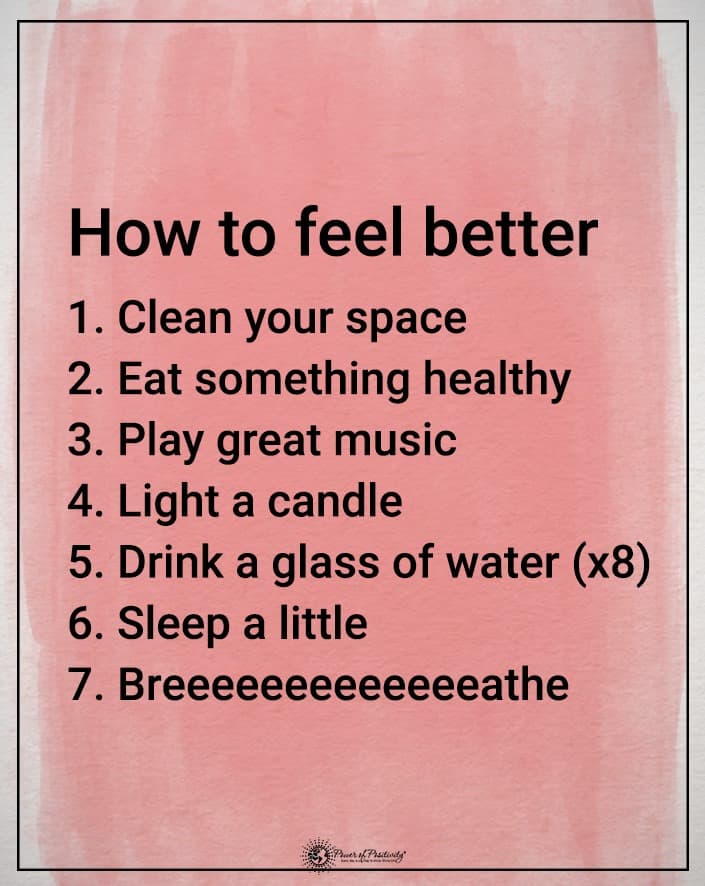Anxiety is something many people struggle with. Anxiety is a natural feeling, but that’s only true if you feel it sometimes or in small doses. But some people have to deal with an odd number of anxious thoughts. For some, it’s a genuine mental health struggle. Anxiety disorders are more common than people might think. This is mainly because mental health still doesn’t get the attention it deserves.
Thus, many people dismiss the symptoms, labeling them as tantrums. Because of the terrible reputation that mental health issues get, many people sweep their problems under the rug. That’s in an attempt to fit in and avoid being ostracized. Unfortunately, all this societal pressure makes it so that most people who have anxious personalities don’t even realize it’s an issue. Maybe they know there’s something wrong, but they hesitate to get the help they need.
Why Anxiety Is Difficult to Pinpoint
Most people don’t even acknowledge that they might be struggling with something. That’s also because society deflects their issues to the point where they find an explanation for everything. If they are overly stressed, they’ll say it’s because of their job. If they overthink, they’ll write it off as a fluke. But, most importantly, people aren’t aware of what makes up a symptom of anxiety and what doesn’t.
Because most people aren’t educated on the subject, they don’t realize when they need help. Because of that, many people risk having their anxiety spiral out of control. Anxiety disorders are illnesses, and they should be treated as such. If you have a broken leg, you would never dismiss the problem and wait for it to fix itself. Instead, you would go to the hospital and get the needed treatment.
Now, that’s not to say that all people who struggle with anxiety need medication or therapy. But, again, therapy helps everybody, not just those dealing with mental health issues. But you must take your issues with anxiety seriously. And the first step towards that is understanding how anxiety manifests and the signs of an anxious personality.
Causes of Anxiety
Before getting into how to tell if you might be struggling with anxiety, it’s essential to understand why anxiety can become a mental health concern. As mentioned previously, anxiety is a normal feeling. It’s an emotion vital for humans thousands of years ago, as it shelters us from danger. Anxiety is best described as a feeling of unease.
This feeling can be mild or severe, depending on your worrying. Severe anxiety is like fear, though it’s a somewhat less intense and more sustained response to threatening situations. But you don’t have to be in a threatening situation to feel anxious. Sometimes, this feeling emerges for no apparent reason.
Until recently, the amygdala was believed to be the only part of the brain responsible for fear and anxiety. Nowadays, anxiety is becoming clear from different reactions in many brain parts. Sure, the amygdala plays a significant role, but a whole fear network determines feelings of anxiety. The easiest way to explain this process is by dividing the brain into an emotional and a cognitive part.
How the Brain Processes Anxiety
The main driver of the emotional brain is the amygdala, where the raw feelings of anxiety are formed. But the process doesn’t stop there, as it was previously thought. Instead, these signals are sent to the frontal lobe, which drives the cognitive brain. If the frontal lobe can rationalize the situation, then the feelings of anxiety subside. For example, if you are worried about taking an exam, the cognitive brain can step in and remind you that you are prepared for it.
In that case, you’ll be able to keep your anxiety under control. But that process doesn’t always occur, and that’s when the real issues appear. If the frontal lobe isn’t stimulated, your anxiety can spiral out of control. While there is a connection between these brain areas, scientists are still unsure about how they form. So, that leaves many questions unanswered, like why people feel anxious for no apparent reason.
But this is a purely biological aspect. When it comes to anxiety, looking at the psychological causes is essential. As with most mental health issues, genetics play a significant role. Some people whose families have a history of mental health struggles will always have a higher risk of being born with or developing such an issue. Besides that, one’s environment is another significant cause.
Past trauma, such as experiencing abuse during childhood, will also put you at risk. In addition, stress build-up, medical issues such as cancer, or your personality type are also risk factors. However, the causes aren’t yet fully understood, so it is essential to comprehend anxiety symptoms.
4 Signs Anxiety Is Part of Your Personality
1. You Always Overthink
Overthinking doesn’t always mean that you have an anxious personality. After all, everyone gets lost in thought once in a while. But, if you always overthink and can seem to find ways to stop, that indicates a deeper issue.
Contrary to popular opinion, overthinking doesn’t mean problem-solving. Just because you obsess over certain things doesn’t mean you come up with a solution. On the contrary, someone who overthinks will excessively worry and convince themselves there is no solution to their problems.
Plus, you will jump from one topic to another if you overthink. You won’t have a precise and controlled stream of thoughts. Instead, all your thoughts will swirl through your mind to the point where you’ll find it difficult to sort them out. If this sounds like something you’ve been struggling with for a while, it’s a sign that you might be dealing with anxiety.
2. You’re Pessimistic
Negative thoughts are something everyone will have to deal with in their lives. Your life can’t be all easy and fun. Sometimes, you’ll go through rough patches, and your mind will inevitably develop negative thoughts. But that doesn’t mean you are a pessimist. A pessimistic person always expects the worst to happen, even if they don’t have a reason to believe so.
Some pessimists use this negative mentality somewhat constructively as a way to prepare for the worst. But most believe everything will go south no matter what they do. In either case, being unable to have hope is a sign you might be dealing with anxiety.
Not only that, but negativity worsens your anxiety. It’s a vicious circle. You feel anxious because of how pessimistic you are, and that pessimism makes you even more anxious, and so on. This type of mentality can only create issues that don’t exist. You should always try to counteract this mentality by being positive, even if it feels impossible, and looking for the silver lining.
3. You Are Always Stressed Out
Most people have been told it’s a good thing to feel about stress. And they aren’t entirely wrong. Stress is something that can motivate you. Small doses make you more aware of the work you need to do. And that extra adrenaline helps you complete a task correctly. But that doesn’t mean living a life filled with stress is good.
Sure, it’s nice to have a high-paying job. But that doesn’t mean it’s worth developing a mental health disorder to earn more money. And stress isn’t limited to your career. If you find that most activities you do stress you out, it’s probably because you are anxious. Anxious people worry about every little detail, creating unhealthy stress.
But the real problem is when you don’t realize you have an anxious personality and maintain the same lifestyle. What you should do to dampen your anxiety is find ways to relax. Take on a lighter workload. Make more time for yourself; for example, practice self-care for a few hours weekly. You can even consider cutting out toxic people from your life.
4. You Have Physical Symptoms
Anxiety is not something that only affects your mood and emotions. Because of the hormones that are released when you feel anxious, your physical health is also affected. These hormones are cortisol and adrenaline, also known as stress hormones. Their role is to prepare you to face threats. Because of that, they increase your heart rate and blood pressure.
You will also experience heavy, rapid breathing and the tightening of the muscles. In addition, some functions, such as some digestive functions, are temporarily shut down. All these changes are supposed to alert you and make you ready to combat whatever danger you are in. This is known as the fight-or-flight response. Nowadays, it’s much less likely to encounter imminent danger than it was thousands of years ago. Most of the time, anxiety is caused by psychological factors.
But these hormones still kick in, and they provoke the same changes. If you constantly sweat and pant when stressed, that’s a sign of anxiety. And the long-term repercussions are severe. If you don’t keep your anxiety levels under control, your risk of developing cardiac or digestive issues increases.
Final Thoughts on Signs Anxiety Is Part of Your Personality
Anxiety is one of the most common mental health issues today. Unfortunately, life gets increasingly stressful, and people are not taught how to deal with it properly. Often, they are told to brush all their problems under the rug and move on. But that only leads to bigger issues. At some point, all those problems will resurface and cause you trouble.
So, identifying signs of anxiety as soon as possible will allow you to begin solving your issues before they become unmanageable. Anxious people tend to overthink and are often unable to sort through their thoughts. They usually have a pessimistic outlook on life, believing that nothing they do can have a positive outcome. They are often way more stressed than they should be, and that’s often because of their environment. But the signs aren’t only psychological.
Anxiety manifests through physical symptoms, such as sweating, labored breathing, and an increased heart rate. If you struggle with one or more of these symptoms, it’s time to consult a professional and start learning to take care of your mental health.



















